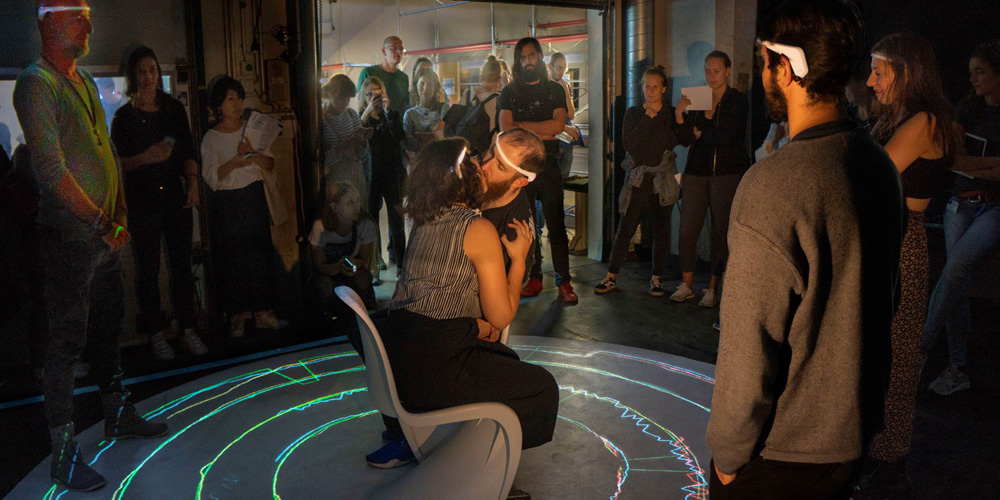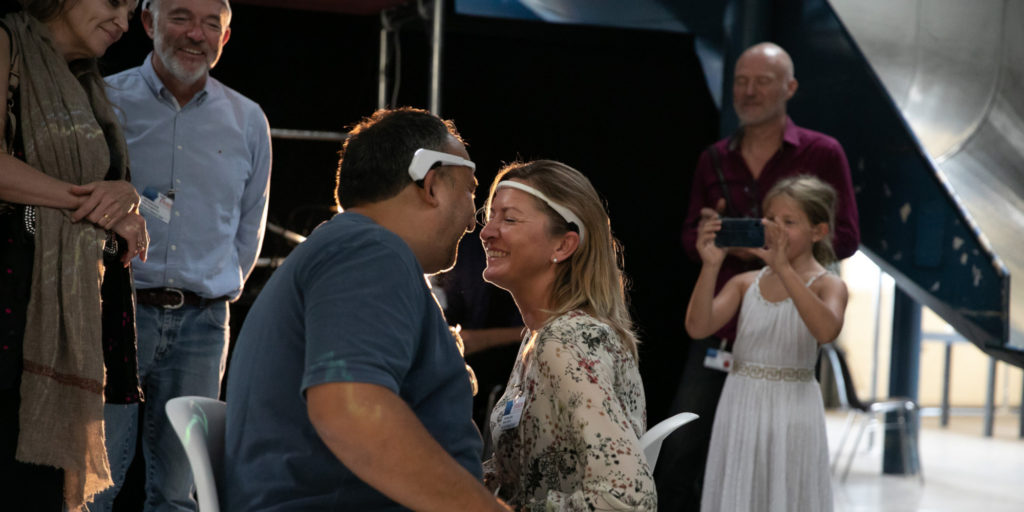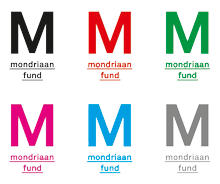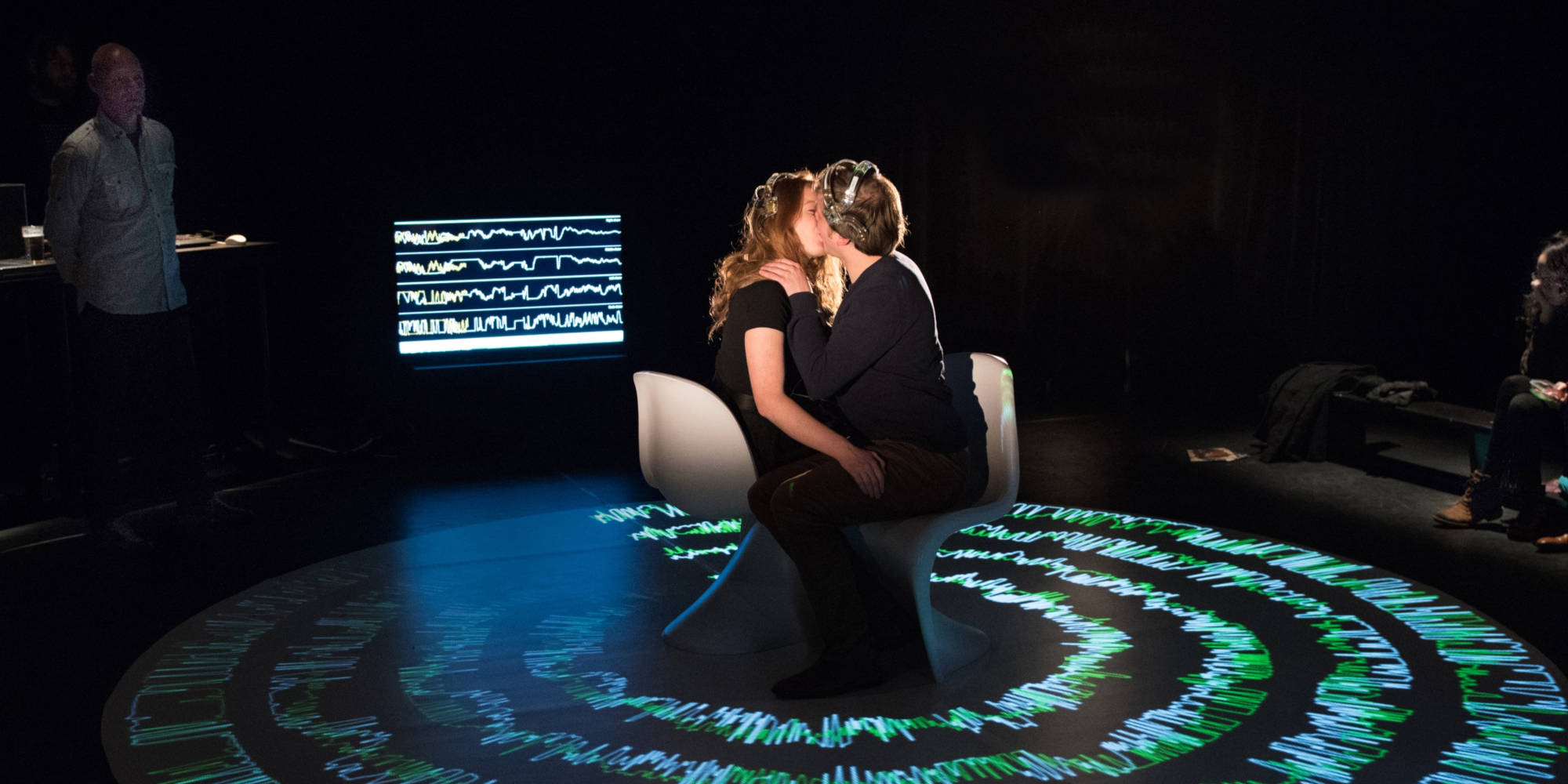Can a kiss be translated into bio-feedback data? How does your kiss feel in E.E.G. data?
Artists’ duo and researchers Lancel/Maat critically investigate social/sensory connections, privacy, empathy, vulnerability and trust when mediated by Multi Brain Computer Interfaces (Multi BCI).
During internationally shown performance-installations, people are invited to experience a shared kiss, as an intimately co-created, reflexive data-scape. Acts of kissing are re-orchestrated for a poetic, digital synesthetic ritual. In live kissing experiments with Multi BCI E.E.G. head-sets, visitors are invited as Kissers or Observers. During kissing, their brainwaves are measured. Real-time, their streaming E.E.G. data encircle them in a floor projection. Simultaneously, the Observers brain waves are measured, their neurons mirroring activity of intimate kissing movements, resonating in their imagination. Both Kissers’ and Observers’ data intimately co-create an immersive visual, reflexive data scape, translated to an algorithm for a soundscape – a ‘Kissing Data Symphony.’


Kissing Data encourages shared agency to explore, co-create and co-interpret intimate BCI data, to share dialogue and reflection on ethical design concepts. In this poetic, Multi BCI mediated social synthesis, each unique E.E.G. data soundscape is saved to be downloaded and appropriated by all visitors. A selection of data-visualizations is printed as a ‘Portrait of a Shared Kiss’.
Credits:
Sound artist: Tijs Ham (NL/NO)
Developed and supported with partners: Mondriaan Foundation, Baltan Laboratories Eindhoven, STEIM Amsterdam, Waag Society Amsterdam ‘Hack the Brain’ Horizon 2020 research programme of the European Union; Public Art Lab / Connecting Cities Network Berlin; TASML Tsinghua University Beijing. The Work was realized within the framework of the EMAP/ EMARE programme at the RIXC Center for New Media Culture in Riga with support of the Creative Europe Programme of the European Union.
Research partners: TU Twente & ‘Dutch Touch Group’; University of Amsterdam ‘NeuroCultures Group’; University of applied science Vienna ‘Digital Synaesthesia Group’; Tsinghua University Beijing, Neuro-engineering department; TNO Netherlands Organisation for Applied Scientific Research; NWO The Netherlands Organisation for Scientific Research.
This interdisciplinary research is part of Lancel’s PhD trajectory at the TU Delft ‘Participatory Systems Initiative’.
Sponsoring: Fourtress, Holst Center and Phillips Eindhoven; Eagle Science Amsterdam.
 |
 |
|
 |
 |
 |
 |



